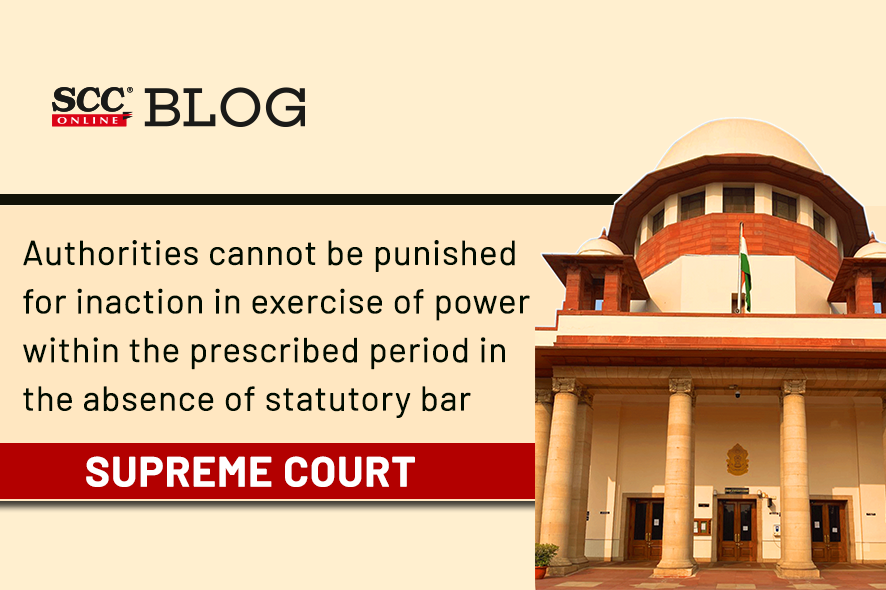Supreme Court: In a civil appeal challenging the Allahabad High Court’s decision of setting aside allotment of land under the provisions of Uttar Pradesh Zamindari Abolition and Land Reforms Act, 1950, (‘the Act, 1950’) the division bench of Ajay Rastogi* and Bela M. Trivedi, JJ. while setting aside the High Court’s judgment and order, said that the High Court committed a serious error in interpreting Rule 176(4).
Appellants in the instant matter are applicants in whose favour land was allotted following the procedure prescribed under the Act, 1950 on recommendations of the Land Management Committee. The said allotment was confirmed by the Sub-Divisional Magistrate and affirmed after a revision petition filed by the complainant who is stranger to the proceedings, was dismissed.
The allotment was initially challenged before and dismissed by the Additional Collector (Finance & Revenue). Revision under Section 333 of the Act, 1950 was dismissed by the Additional Commissioner. In a writ petition filed under Articles 226 and 227 at the instance of complainant challenging such allotments, the High Court questioned the allotment made in favour of appellants, set aside the Additional Commissioner’s order and remitted the matter back to the authority for examination in accordance with law, being the subject matter in the present appeals. The High Court was of the view that such decision on allotment should have been taken within a week of its receipt by the competent authority, while 8 months had been consumed for granting final approval, thereby violating the Rule 176(4) of the Uttar Pradesh Zamindari Abolition and Land Reforms Rules, 1952.
The Court said that the High Court missed out on the facts of the case and did not examine any errors in the decision-making process during allotment of land to the landless persons and proceeded with its decision. The Court also commented on the complainant being stranger to the proceedings that “regardless of the fate of the allotment, the original petitioner is not going to lose, but can defeat the rights of persons to whom allotment has been made.”
Dealing with the present matter, the Bench examined the scheme of Rule 176 which provides for the procedure to be followed by the applicants entitled to allotment of land. It was pointed out by the Court that reference under subrule (4) made by the Assistant Collector to grant appropriate approval within a week of its receipt, reflects its object to decide the matter in a time bound manner, so that landless persons or others in whose favour recommendations are made after going through the process may not be deprived of the legitimate right conferred upon them, but a delay due to Ministerial or administrative reasons cannot be attributed to the allottee applicants. The Court said that if the authority fails to exercise its powers within the stipulated period, such inaction will be inconsequential, which will not invalidate the proceedings.
The Court further saidthat the recommendations made by Land Management Committee after grant of approval by the Assistant Collector were examined by different authorities exercising power under Section 198(4) of the Act, and under revisional jurisdiction under Section 333 of the Act, the respondents were unable to indicate any error or illegality committed in the decision-making process during allotment in favour of the appellants.
The Court also said that failure of competent authority in exercising power under Rule 176(4) within the prescribed time frame beyond the ambit and control of the allottee applicants, should not result in saddling them with heavy costs for inaction. Also, there was no justification for setting aside the allotments in the unavailability of any provision invalidating such proceedings. The Court noted that there is no consequential effect on non-compliance, if the authority did not act within a week as referred under Rule 176(4).
The Court opined that the High Court hascommitted a serious error in interpreting Rule 176(4) in the right perspective while setting aside the proceedings and remitting the matter back to the authority without any reason or justification. More so because no error has been pointed out in the decision-making process adopted by the authorities under the provisions of the Act. Thus, the Court set aside the judgment and review order passed by the High Court.
[Kamal and Others v. Gajraj and Others, 2023 SCC OnLine SC 142, decided on 14-02-2023]
*Judgment authored by: Justice Ajay Rastogi;






